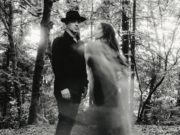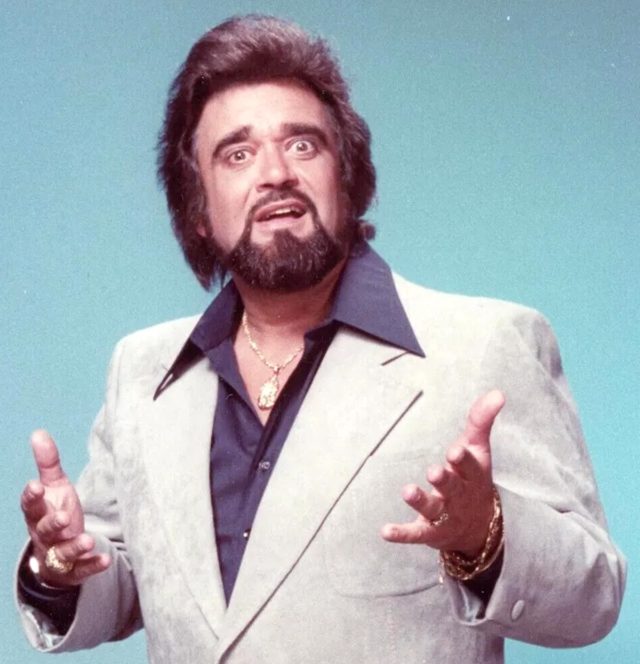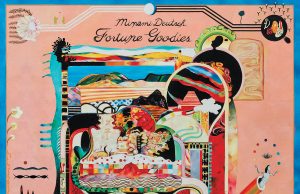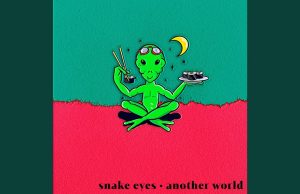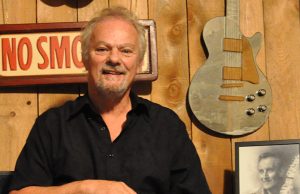 My first record player was a hand-me-down 1960s Mickey Mouse one — in a white plastic shell case. I used this from the time I was four years old until I was around 10, when I inherited my brother’s Soundesign 6438, which had a built-in AM/FM receiver, 8-track player and attached turntable.
My first record player was a hand-me-down 1960s Mickey Mouse one — in a white plastic shell case. I used this from the time I was four years old until I was around 10, when I inherited my brother’s Soundesign 6438, which had a built-in AM/FM receiver, 8-track player and attached turntable.
In those early days, I had a handful of records which I’d subject to the crude stylus under Mickey’s white-gloved left index finger — Elton John’s Greatest Hits Vol. II, K-Tel’s Dynamite! and 22 Explosive Hits, Alice Cooper’s Greatest Hits, School’s Out, Chicago’s Greatest Hits, Elton’s Friends soundtrack, his 1978 A Single Man album, the 1969 self-titled LP and Zenyatta Mondatta by The Police. Those last two were the first ones I bought myself.
I also had a handful of singles which — apart from Pink Floyd’s Another Brick in the Wall Part II — I probably inherited from my brothers or sister. These included Days Gone Down by Gerry Rafferty, Swayin’ To The Music (Slow Dancing) by Johnny Rivers, Raise A Little Hell by Trooper, a whale sounds flexi-disc, I’ll Know Her When I See Her by Cooper Brothers, Life’s Been Good by Joe Walsh, Penny Lane/Strawberry Fields Forever by The Beatles and my favourite: Hit The Road Jack by Calgary’s The Stampeders.
This was my favourite because it included Wolfman Jack, who grew into something of a legend for me. By the late 1970s, the iconic American DJ was basically a novelty act. The Stamps’ cover of Hit The Road Jack contained spoken-word exchanges at the top and bottom between Wolfman Jack and Stampeders bassist Ronnie King — who Wolfman calls by his real name, Cornelius (Van Sprang). The gag is, Cornelius is calling in to the Wolfman’s show to ask if he can stay at his “mansion” for the weekend because his girlfriend threw him out. Wolfman turns him down and gets off the line as quickly as possible.
Wolfman Jack, whose real name was Robert Smith, rose to fame in the 1960s as a DJ with one of the high-powered stations on the Mexican side of the U.S. border — known as “border blasters.” Given a radio by his father to ease the pain of his parent’s divorce when he was still a kid, Smith became an avid fan of R&B, and of the DJs who played it, including Alan “The Moon Dog” Freed on WJW in Cleveland and Smith’s eventual mentor, “John R” Richbourg on WLAC in Nashville.
Smith sold encyclopedias for a while in New York before going to broadcasting school in D.C. He began to develop his Wolfman Jack persona in the early ’60s at KCIJ in Shreveport, basing his gravelly voice on blues singer Howlin’ Wolf, and basing his patter and howl on that of Moon Dog. By 1963 he was hired by XERF-AM, which broadcast from Ciudad Acuna in Mexico, with a signal strong enough to be heard from Los Angeles to New York City. This is where he rose to fame, eventually becoming a household name for more than a decade courtesy of syndicated programs, entertainment magazines and many appearances on TV and movies. He became just as famous for his appearance as his iconic voice.
In 1995 — six years before his death — his voice was used in the American version of the arcade game DJ Boy as the announcer Demon Kogure. For a couple of years he voiced the narrator in Hanna-Barbera’s animated Happy Days spinoff The Fonz & the Happy Days Gang. His final TV appearance was in a 1995 episode of Married… With Children. But it was his inclusion in George Lucas’s 1973 film American Graffiti that set him up for life, thanks to being cut in for a small share of the movie’s profits.
The Wolfman’s style was emulated by Jim Morrison on The Doors track The WASP (Texas Radio and the Big Beat), and he’s name-checked on the Sugarloaf hit Don’t Call Us We’ll Call You and Grateful Dead’s Ramble On Rose. Wolfman also appeared as himself on various recordings, like the single version of Todd Rundgren’s tribute song Wolfman Jack from 1972. The album version on Something/Anything? features Rundgren portraying the Wolfman.
He’s in the middle section of Don’t Cry, from Steppenwolf’s 1969 album At Your Birthday Party. Bob Dylan name-drops Wolfman Jack on his 2020 song Murder Most Foul, but of course the best cameo was the one on my homegrown 1975 Stampeders single. In fact, Wolfman had a lot of dealings with the Canadian entertainment industry. The year before he appeared on Hit The Road Jack, Wolfman lent his voice to the tribute song Clap For The Wolfman by The Guess Who. The song hit No. 4 in Canada and No. 6 on the U.S. Billboard 100. It also was in the Top 20 in South Africa, Holland and Belgium, for some reason.
In 1971, Hamilton TV station CHCH produced dozens of episodes of the kids show Hilarious House of Frightenstein. The show featured appearances by Vincent Price, but primarily starred comedian Billy Van in a variety of roles including Count Frightenstein — the 13th son of Dracula who was a Transylvanian exile because he couldn’t get his Frankenstein-like monster Brucie to wake up. But he also portrayed a witch named Grizelda who had a cooking segment, the curmudgeonly creepy Librarian who read fables, The Oracle who interpreted horoscopes, Dr. Pet Vet who would bring on a different animal each episode, British safari expert Bwana Clyde Batty and — The Wolfman, who had a radio station within Castle Frightenstein and would play a different song each episode and then dance to it, silhouetted against a psychedelic screen. The Wolfman was like an affable version of the famous Lon Chaney Jr. character — except wearing overalls and sounding a lot like Wolfman Jack. The show was syndicated for many years.
Meantime, from Oct. 5 1976 until Sept. 13 1977, CBC produced a half-hour variety series called The Wolfman Jack Show, which was syndicated to stations across the States. The 28-episode show was shot in Vancouver by Smith’s Howl Productions and featured musical guests including Canadian acts Bachman-Turner Overdrive, The Stampeders, Patsy Gallant, Anne Murray, Susan Jacks, Catherine McKinnon as well as and international acts Abba, Blood Sweat & Tears, Jose Feliciano, Gladys Knight & The Pips, David Cassidy, Kenny Rogers, Tom Jones, Bo Diddley and Little Richard. The show ran concurrently with the Wolfman’s other musical variety show, The Midnight Special.
Wolfman Jack also made a number of his own singles and albums as a recording artist. His 1965 garage-rock single Wolfman Boogie is a scarce treat:
There’s quite a bit of tripe out there, of course, and loads of novelty stuff, like this single from 1967.
I made a fun playlist of his various appearances on wax… enjoy!
• • •
Area Resident is an Ottawa-based journalist, recording artist, music collector and re-seller. Hear (and buy) his music on Bandcamp, email him HERE, follow him on Instagram and check him out on Discogs.












